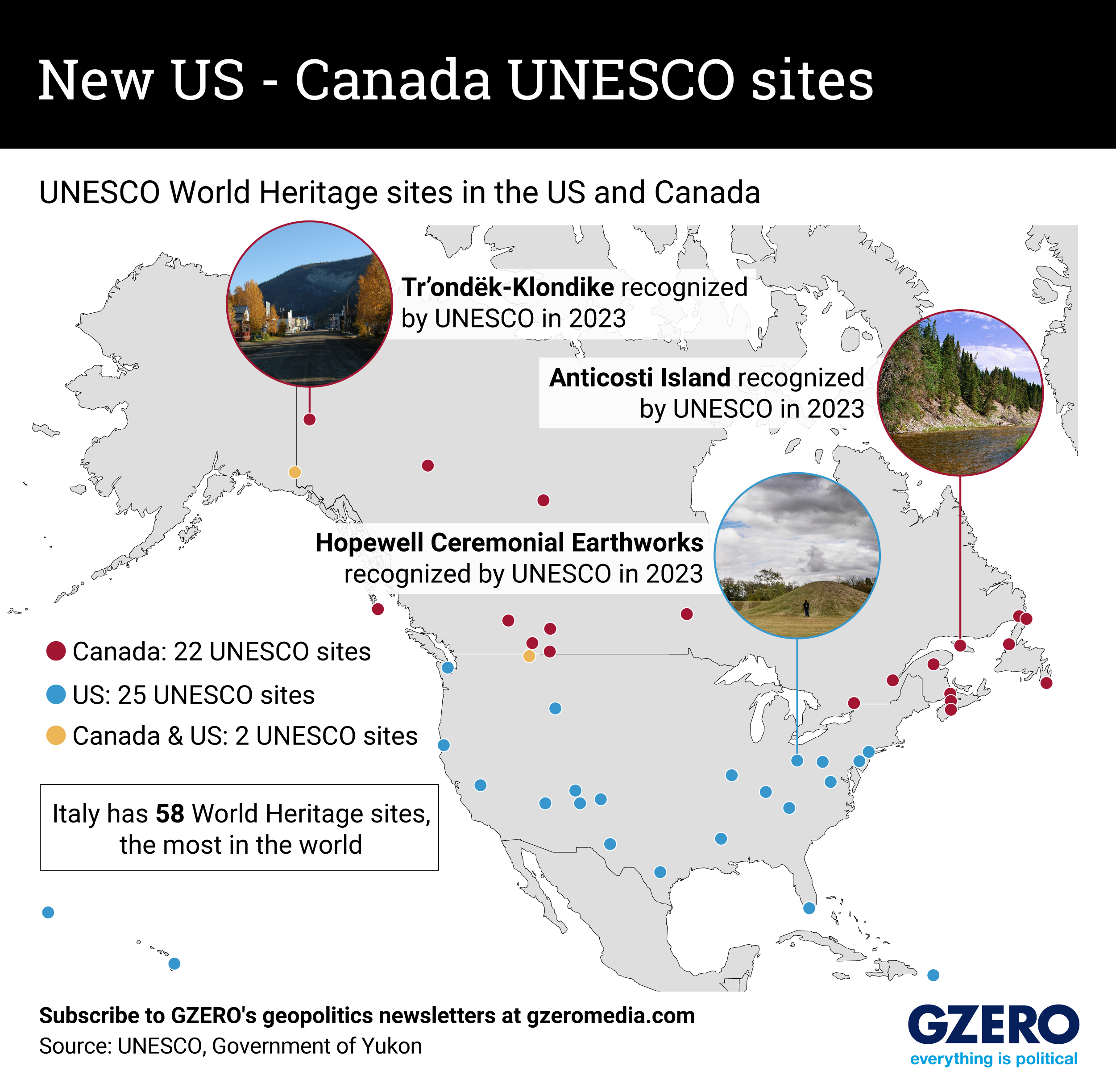UNESCO World Heritage Sites are landmarks or areas of outstanding and irreplaceable value to humanity. Only countries that have signed the UNESCO convention can nominate sites, which if selected, will be monitored by UNESCO and given light funding. The power of UNESCO is largely prestige, tourism attraction, and the threat that the status can be taken away if the area is depleted or developed.
Canada and the United States have 22 and 25 sites respectively, and the 2023 adds were Tr'ondëk-Klondike and Anticosti Island in the Great White North and Hopewell Ceremonial Earthworks in Ohio.
Tr'ondëk-Klondike in the Yukon represents the cultural heritage of the Tr’ondëk Hwëch’in and their relationship with the Klondike River. Their application presented the region as a unique case study in colonialism and its lasting impact on Indigenous communities forced to respond and adapt.
Meanwhile, Anticosti Island is recognized for its unique geological features and biodiversity that hold ancient evidence of the first global mass extinction of life on Earth. It is home to the most complete fossil record of marine life in Earth's history between 447 and 437 million years ago — a period never before represented on the UNESCO World Heritage list. Local officials had been pushing for the island to be recognized to ensure its environmental protection in the face of a heated debate over oil and gas exploration, which began in 2013.
The US added the site Hopewell Ceremonial Earthworks in Ohio in 2o23. The addition coincided with Washington rejoining UNESCO, after former President Donald Trump withdrew from it in 2017, citing “anti-Israel bias” in the organization's decision to recognize Palestine, escalating the Obama administration’s decision to cut UNESCO funding when Palestine was given membership in 2011.
